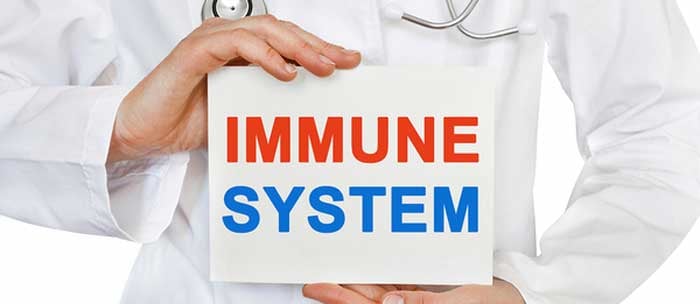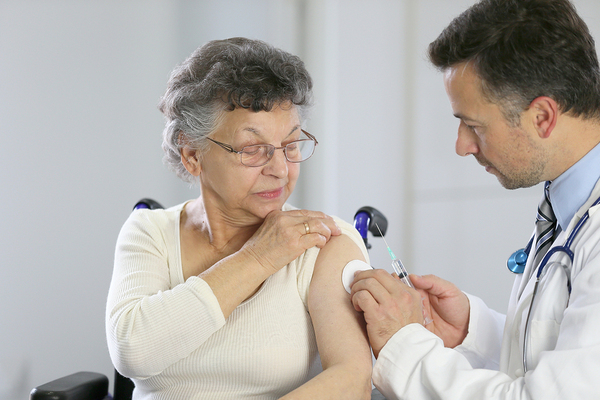
We often think of aging in terms of its outward manifestation: whitening hair, wrinkled skin, a slower pace, and so on. However, aging is also accompanied by a multitude of “hidden” signs. And while we may not be able to see these, they can have a significant bearing on health and quality of life in seniors. One lesser-discussed aspect of the aging process? A weakening immune system.
Here’s a closer look at the impact of aging on the immune system, along with why all caregivers should be aware of this issue.
Understanding the Immune System
“The immune system is a complex array of organs, cells and molecules distributed throughout your body, responsible for protecting your body from harmful invaders such as germs, viruses and other foreign substances. Specialized white blood cells that play a major part in your body's immune response gather in your lymph nodes and other parts of your immune system.”
Aging and the Immune System
Unfortunately, immune system function breaks down and becomes less effective as we grow older. Explains Wolters Kluwer,
“Immunosenescence refers to the changes that occur in the immune system with increasing age. The clinical consequences of immunosenescence include an increased risk of infections, malignancy, and autoimmune disorders.”
Specifically, age-related immune system changes may include the following, as reported by MedlinePlus:
- The immune system becomes slower and less responsive, increasing the risk of sickness. As a result, certain vaccines may not work as well or as long. Explains Merck, “Although the amount of antibody produced in response to an antigen remains about the same overall, the antibodies become less able to attach to the antigen. This change may partly explain why pneumonia, influenza, infective endocarditis, and tetanus are more common among older people and result in death more often. These changes may also partly explain why vaccines are less effective in older people and thus why it is important for older people to get booster shots (which are available for some vaccines).”
- The body may develop an autoimmune disorder in which the immune system becomes unable to distinguish healthy tissue from unhealthy antigens and begins destroying the former rather than the latter.
- Healing may slow due to a decrease in the number of immune cells. In other words, not only are seniors more susceptible to infection, but they also face increased challenges to healing.
- The immune system loses its ability to detect and correct defects in cells, which may result in an increased cancer risk.
How Caregivers Can Help
The good news? The human body is resilient, and there are several things caregivers can do to help minimize the effects of aging on the immune system, including the following:
- Make sure seniors in their care get all vaccines recommended by their healthcare providers, including flu and pneumonia vaccines.
- Encourage plenty of immune system-boosting exercise.
- Focus on a nutritious diet, which bolsters the immune system and helps keep it strong.
- Help seniors quit smoking, which further weakens the immune system.
- Help seniors adhere to their healthcare practitioners’ recommendations regarding alcohol intake.
- Take preventative measures against trips and falls, as the healing process from these and other injuries may be slower in seniors due to the weakened immune system.

It’s also important to keep in mind that common signs and symptoms of severe infections may be missing in older patients. Says Wolters Kluwer,
“The clinical presentation of infections in older patients may be different from that in younger patients. Older adults with severe infections tend to have fewer symptoms and fever is absent or blunted in 20 to 30 percent. This suggests a decreased ability to mount inflammatory cytokine responses in the face of infection. Signs of infection in older adults can be nonspecific and include falls, delirium, anorexia, or generalized weakness.”
One last thing to keep in mind? Safeguarding the immune system isn’t just a senior health issue. Research published in the journal, Immunosenescence: Psychosocial and Behavioral Determinants, shows that the “chronic stress of caregiving accelerates the natural aging of the immune system.” Incorporating the tips listed above into your own self-care regimen can be a vital part of staying well. The following video also offers invaluable insights into caregiver stress and stress management.
mmLearn.org offers a large library of free videos for caregivers of older adults, covering topics pertaining to senior care. Whether you are a healthcare professional or a family caregiver, if you are caring for an older adult we know that you will find mmLearn.org an essential learning and guidance tool for all of your caregiver training needs. Access our database of free online caregiver videos to continue learning today.
